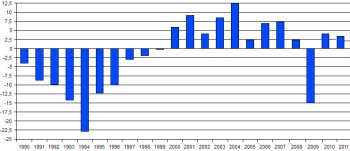What are the Basics of Personal Investing Strategies?
 Have you ever heard anyone say, “Insurance policies are not investment instruments?” Or have you wondered what the difference is between a 401(k) retirement plan and an IRA retirement plan? Most people don’t really keep all these things straight, but there are also many conflicting opinions out there. Here is a quick run down of pros and cons for investment tools available to the average individual (we don’t need to worry about where wealthy people put their money).
Have you ever heard anyone say, “Insurance policies are not investment instruments?” Or have you wondered what the difference is between a 401(k) retirement plan and an IRA retirement plan? Most people don’t really keep all these things straight, but there are also many conflicting opinions out there. Here is a quick run down of pros and cons for investment tools available to the average individual (we don’t need to worry about where wealthy people put their money).
And we should also note that these are the investment tools available to most Americans. Opportunities may differ from country to country, so this is by no means an exhaustive list of what everyone in the world can do. But hopefully these examples are clear enough to allow you to compare what is available in the USA to what is available in your own country.
INTEREST-BEARING CHECKING ACCOUNTS used to be available only to wealthy people but with the advent of direct deposit plans from employers many banks now offer some form of interest-bearing checking (or fee-less checking) if you set up direct deposit from your job to your checking account. If you can just schedule electronic transfers from outside institutions like Paypal you may qualify for these special accounts.
Pros: You pay no fees and may earn some interest.
Cons: It’s hard to keep money in a checking account and you may have to maintain a minimum balance to earn interest.
SAVINGS ACCOUNTS are the first investment vehicle we all learn about. In principle the bank pays you interest for keeping your money in its savings plan. In school they teach us that banks make money by borrowing it at a low interest rate and lending it out to people at a higher interest rate. The truth is more complicated than that. Banks actually borrow more money from each other (or the Federal Reserve Banking System) than they do from their savings deposits. One reason is that banks are required to keep a certain amount of cash on hand as a “reserve” against customer withdrawals.
Savings accounts pay very low interest and often compare poorly to the inflation rate. You may actually lose money over time by keeping a lot of money in a savings account. You can usually get a better savings account with a credit union than with a bank.
Pros: Quick and easy to set up, and they can serve as overdraft protection for checking accounts.
Cons: Limited number of withdrawals per month and interest rates are very low.
BONDS are easy to buy through banks and other institutions. The most well-known bonds are US Savings bonds but industrial and municipal bonds are usually easy to buy, too. As a consumer you can consider a Certificate of Deposit (CD) that you get at your bank to work similar to a bond, even though the law defines them differently. Bonds are investor-to-borrower loans, plain and simple. You are guaranteed a certain amount of interest against the money you loan to the bond issuer. The higher the interest rate associated with this kind of investment the higher the risk associated with it. Companies and cities close to bankruptcy typically pay very high interest rates on the bonds they sell (if they can sell them at all).
Pros: Easy to obtain, often very inexpensive (but this vares).
Cons: Rarely pay well without entailing high risk, your money is locked in until the bond matures.
SOME INSURANCE POLICIES such as Whole Life and Universal Life plans are coupled with investment accounts. These types of insurance policies are least expensive when purchased at an early age (you can buy them for children as young as 1 year old). The investment accounts offer “guaranteed interest rates” that ensure your accumulated savings grow at least a certain amount each year. The growth when compared to long-term stock market gains is usually not very good but when purchased during periods of higher inflation these accumulation accounts can pay off handsomely during years when inflation is low.
The premiums are divided between “cost of insurance” (what you would pay the insurance company for a comparable Term Life Insurance policy) and the accumulation account investment. Premiums are usually adjustable after the first year, but cost of insurance may increase as you grow older. If you buy a Universal Life policy at age 20 and maintain it all your life, by the time you hit your 40s your premiums will be considerably less than if you buy Term Life Insurance.
Pros: Premiums don’t increase or increase only slowly, investment accounts pay guaranteed interest, and you can borrow against the accumulated value at a reasonable interest rate which you repay to yourself.
Cons: If you stop paying the plans eventually expire (and buying a replacement policy is more expensive because you are older) and the guaranteed interest rate will never be as good as general stock market growth except in poor economic times.
COMPANY PENSION PLANS are not as popular as they once were because corporations don’t like the expense of managing these plans. State and Federal government agencies may still offer pension plans as well as some unions and large manufacturing companies. A typical pension plan consists of a company making contributions on behalf of the employee. If the employee leaves the company before a certain number of years’ service (10-to-20 in most plans) they may forfeit their earned pensions. Early retirement packages may also be used to change how pensions are paid. The pension funds have to be managed by professional investors who typically buy stocks and/or shares in mutual funds or other investment assets. The pension funds may be administered by dedicated pension fund managers, insurance companies, or the organizations that set up the pensions themselves.
Pros: You don’t have to worry about how the money is invested, and you may be able to collect Social Security along with your pension when you retire.
Cons: You may lose your pension if the company fails or you do not complete enough years of service; the plan administrator may make bad investments, forcing changes to how pensions are paid.
401(k) PLANS became popular in the 1980s although they were originally developed for high-income white collar employees. The idea behind the 401(k) plan is that you (and sometimes your employer) make regular contributions to a special investment account which is not taxed until you withdraw the money. To discourage early withdrawal the 401(k) plan must assess a 10% penalty on any non-exempt early withdrawals in addition to taxes you pay on those withdrawals.
You own your 401(k) investment account, whereas with a pension the plan is owned by the company, union, or government. As the owner of your own account you decide where the money is invested. However, consumer financial investment laws prohibit employers and plan managers from giving specific investment advice. Your boss may be the world’s best investment strategist and he is legally forbidden from suggesting to you how to invest your money.
Pros: Consumers decide where to put the money and when to take it out.
Cons: Highly regulated and structured to prevent pre-retirement withdrawals as much as possible. Also, most consumers are terrible investment strategists.
INDIVIDUAL RETIREMENT ACCOUNT (IRA) PLANS are similar to 401(k) plans but whereas your employer decides which company to use for the 401(k) and which investment funds to make available to you, you control your IRA. The investments in an IRA are also regulated and you may pay penalties for early withdrawals.
Pros: You wholly own the plan and don’t have to worry about who controls its options.
Cons: You may not make enough to have any money left over to invest in an IRA. Most consumers are still terrible investment strategists.
CONSUMER INVESTMENT ACCOUNTS are available through any licensed brokerage. You sign up, deposit money, and then either let an account manager decide where to put your money or you start making investments yourself. These brokers are large, well-funded, and they are the gateways through which everyone enters the stocks and commodities markets. You cannot make investments without a broker (unless you are yourself a broker) except in very rare cases (some companies/agencies sell stocks and bonds directly to consumers).
All those commercials for Charles Schwab, E*Trade, and other brokerages are trying to get you to sign up with their consumer investment services. You can buy and sell stocks, options, futures, whatever.
Pros: There are no penalties for withdrawals (except as specified in the broker contract) and you can put your money to work through any exchange the broker has access to.
Cons: Most consumers are terrible investment strategists and you are now responsible for every trading-related fee and expense imaginable.
To be honest, if you’re going to invest in the stock market, you would probably do best to follow Warren Buffett’s advice and just buy into an S&P 500 index fund. These funds are managed by software, usually have low fees (which vary by broker), and have the best track records for growth over time. You don’t have to think about these kinds of investments and whether you are investing through a 401(k), IRA, or consumer investment account you are less likely to go wrong by just riding with the market in a major index fund than by trying to “buy low, sell high” on stocks, mutual funds, and commodities (or derivatives contracts).



